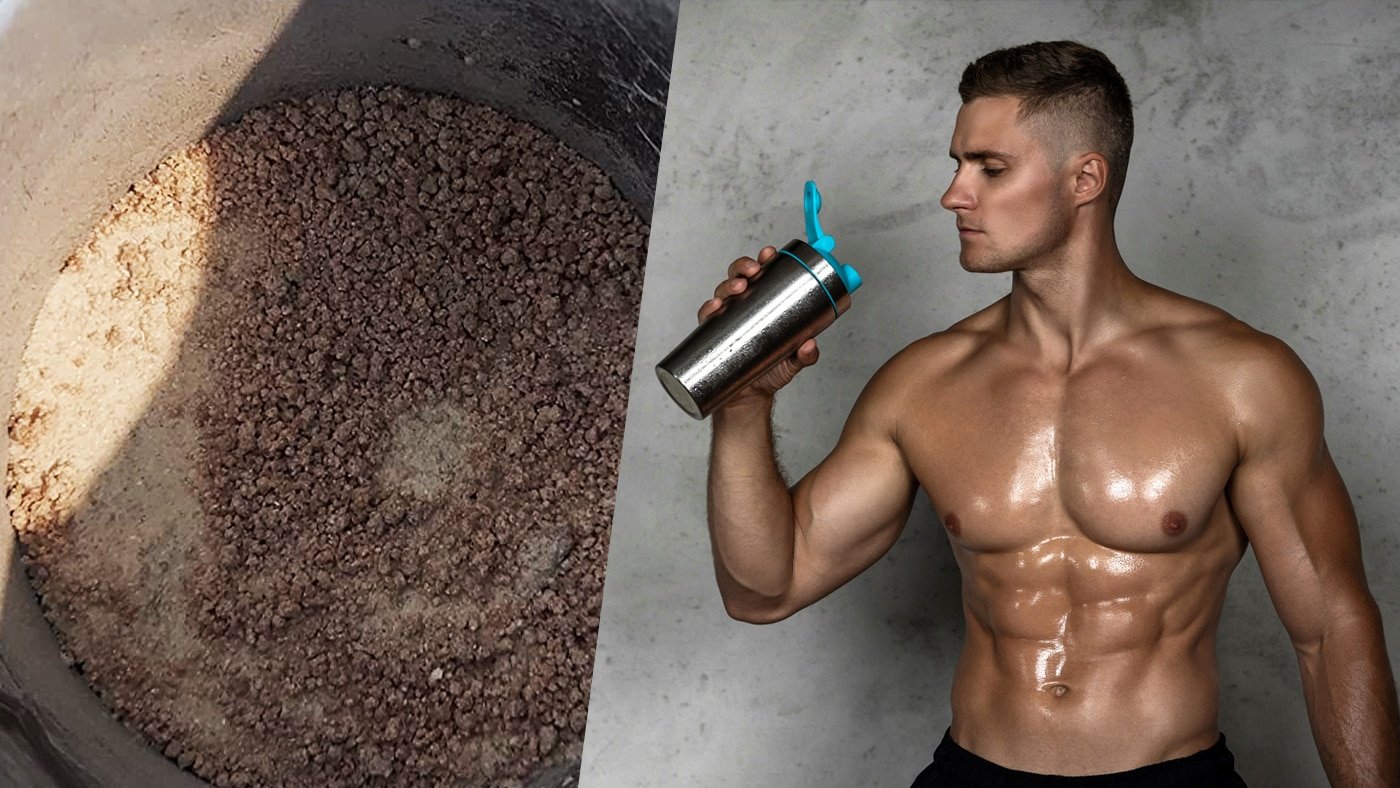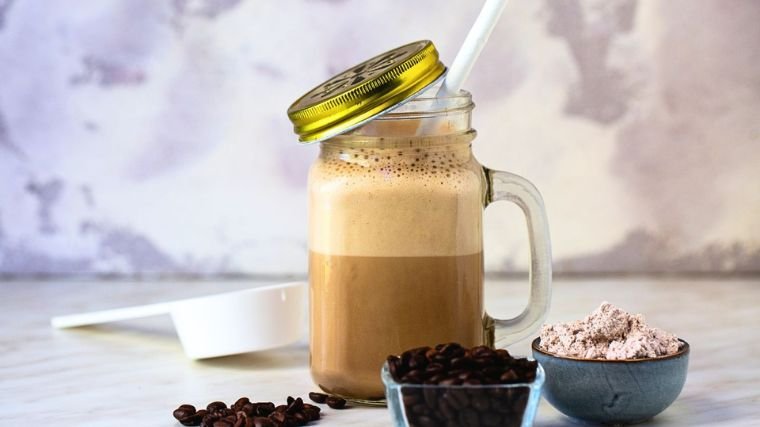More than a century ago, caffeine or 1,3,7-trimethylxanthine—was recognized as a commonly used, legal performance-enhancing substance. It has been demonstrated to enhance performance in repeated high-intensity efforts and endurance-based exercises. Caffeine has consequently gained popularity as a component in pre-workout supplements, which athletes and fitness enthusiasts take to improve their workout efficiency and meet their fitness objectives.
It appears that we can benefit from including caffeine in our post-workout routine, too.
Due to the widespread use of caffeine in pre-workout supplements, an extensive range of products with varying caffeine dosages and formulations to meet diverse needs has been developed.
But how much caffeine is in pre-workout?
It is crucial to use caffeine-containing pre-workout supplements sensibly and in approved quantities to prevent unpleasant side effects.
Table of Contents
Is pre-workout good for you?
Dietary supplements consumed before a workout intended to increase athletic performance and workout outcomes are called “pre-workout” supplements. These can help you achieve your fitness goals by improving the efficiency of your weight or cardio routine or by giving you the extra push you need at the gym.
It’s critical to educate yourself on the caffeine content of pre-workout supplements to determine their caffeine concentration. Pre-workout supplements come in various forms, from multi-item alternatives to single-ingredient versions with just one active ingredient, including caffeine, beta-alanine, or creatine. These supplements are designed to provide targeted benefits, such as increased energy, stamina, or physical strength.

On the other hand, pre-workout supplements with several ingredients consist of a combination of active chemicals. These usually include caffeine and other performance-enhancing substances like creatine, carbohydrates, brewed coffee, and even amino acids. These supplements aim to provide many benefits, including increased energy, focus, stamina, and muscle growth.
The choice between single- and multiple-ingredient pre-workout supplements primarily depends on individual goals, preferences, and tolerance limits. While some people may appreciate the broad range of benefits provided by multiple-ingredient supplements, others may prefer the simplicity and targeted benefits of single-ingredient supplements.
One of the herb ashwagandha’s many well-established advantages for men is that it can raise testosterone levels. Other well-known health advantages of ashwagandha include lowering stress and anxiety, enhancing mental clarity, building muscle, and boosting vitality generally.
How much caffeine is in pre-workout?
Caffeine is a game-changer in pre-workout supplements because it can increase energy and enhance athletic performance. But how much caffeine should you use in your pre-workout drink to get the best results without harmful side effects?
The recommended daily caffeine intake can differ depending on age, caffeine tolerance, and fitness objectives. Based on numerous studies and research projects, the International Society of Sports Nutrition suggests 3-6 mg/kg (1.4–2.7 mg per pound) of body weight. About 204–405 mg is equivalent to 68 kg (~ 150 pounds) for an individual.
One cup of coffee typically contains about 100 milligrams of caffeine. Considering the suggested dosage, approximately two cups of coffee can improve your performance. Alternatively, you can choose the anhydrous form of caffeine found in supplements as a concentrated, practical, and efficient help for improved endurance performance.
Does the Amount of Caffeine Matter?
If you’re considering improving your workouts, adding caffeine to your pre-workout routine is one easy way to boost your performance. Due to its ergogenic solid effect via several routes, caffeine has been the subject of numerous clinical studies investigating its effects as a pre-workout supplement. It helps to improve physical performance by acting on the neurological system and muscles.

Cognitive function: The neurotransmitter adenosine promotes relaxation and drowsiness. On the other hand, caffeine promotes alertness, wakefulness, attentiveness, and mental clarity by acting as an adenosine antagonist. According to a 2016 review evaluation, coffee consumption can improve specific cognitive processes. For example, attention, reaction time, and vigilance were all increased by doses ranging from 32 to 300 mg (for a person weighing 75 kg). Additionally, compared to the placebo group, a small group of twenty men and women with prior exercise training demonstrated that a coffee intervention significantly improved complicated reaction time.
Exercise for endurance: Research on the ergogenic effects of caffeine on muscle endurance has been conducted. It works at the muscle level by increasing the rate at which free fatty acids are oxidized, protecting glycogen reserves, and enhancing endurance capacity. Caffeine also can postpone exercise-induced weariness by lowering perceived effort. Caffeine is hypothesized to have this effect because it can reduce sensations of tiredness and drowsiness by decreasing the amount of adenosine in the brain.
High-Intensity and Power Performance: Caffeine supplements have an ergogenic impact on endurance athletes with moderate to high levels of training during extended aerobic exertion. One of the main causes of this is caffeine’s ability to increase power output by releasing calcium ions in muscle cells. This process enhances muscular activation, force production, and contractile speed. Consequently, this results in enhanced force output and muscular contractions.
Diminishing the Perception of Pain: Coffee may function as an inhibitor of adenosine. Caffeine can lessen pain perception by interfering with pain signals or inhibiting peripheral adenosine receptors on sensory nerves.
The Adverse Effects of Coffee
While using caffeine as a sensibly pre-workout supplement might have several health benefits, it’s vital to comprehend and be aware of any potential adverse effects. Research has shown that the chance of suffering adverse effects rises with the amount of caffeine taken. When using large doses of supplements containing caffeine or exposing your body to caffeine for the first time, you could encounter adverse effects such as
- Heart palpitations,
- Anxiety and restlessness
- Sleeplessness and disturbed sleep patterns
- vertigo and headaches
It’s crucial to start with small quantities of caffeine and gradually increase until you reach your ideal dose to utilize it safely. Caffeine should be avoided in the late afternoon to prevent impacting sleep.
Studies show caffeine should be avoided at least six hours before bedtime. If you encounter any adverse side effects, such as agitation, nervousness, or palpitations, you should reduce your coffee use or give it up completely.
Coffee vs Pre-Workout
Coffee and pre-workout pills are two common methods of increasing athletic performance through caffeine intake. However, there are a few differences or contrasts between the two. Although coffee has long been a popular way to get caffeine, pre-workout pills are a relatively new product. Caffeine, amino acids, creatine, branched-chain amino acids, B vitamins, botanicals, beta-alanine, and nitric oxide boosters are among the mixture of substances that these supplements usually contain. They are made expressly to improve sports performance in light of particular advantages, like:

- Amino acids promote blood flow, provide muscles with a quick energy source, and aid in muscle regeneration.
- Creatine for quick pathways that produce energy
- B-vitamins in the processes of metabolism and energy production
- Use beta-alanine to lessen weariness and buffer the pH shift in muscles during exercise.
- Botanicals such as beetroot powder, ashwagandha, and green tea can improve blood vessel dilatation, inflammation, and performance.
Caffeine that has been highly concentrated, known as anhydrous caffeine, is typically seen in pre-workout supplements.
On the other hand, coffee has been a popular beverage for ages and is a natural source of caffeine and other health-promoting ingredients and antioxidants. Coffee’s caffeine level varies widely depending on the type, brewing technique, and serving size, even though it can have performance-enhancing advantages like reducing weariness and promoting intense exercises.
While pre-workouts and coffee can enhance athletic performance, pre-workouts are generally preferred by athletes looking for a specific and reliable caffeine dose and extra components to boost performance. While coffee could be more leisurely and convenient for certain people, it might not improve performance to the same extent as pre-workouts.
Conclusion
Caffeine is a vital substance that can provide several advantages when taken as directed in a pre-workout supplement. To ensure you get the optimum quantity for your needs, it is crucial to know how much caffeine is in a pre-workout supplement and the other ingredients and at the proper dosages.
Caffeine can boost energy and enhance performance during exercise, but it’s important to use it carefully and sensibly to avoid any adverse effects like jitters and anxiety. Understanding the differences between pre-workout supplements and caffeine can help you choose which is better for your fitness goals. If taken in moderation, coffee can greatly benefit your exercise regimen.
FAQs
How much caffeine in pre-workout is safe?
The caffeine content in pre-workout supplements ranges from 150 to 300 mg per serving. That comes out to around three cups of coffee. That is quite a bit. If you’re sensitive to caffeine, you might want to reduce your intake or look for more natural ways to become energized before working out.
Is pre-workout healthy?
Dietary supplements known as “pre-workouts” have the potential to improve performance and facilitate recovery from exercise.
Is pre-workout safe for teens?
Young athletes might benefit most from staying away from pre-workout supplements.



